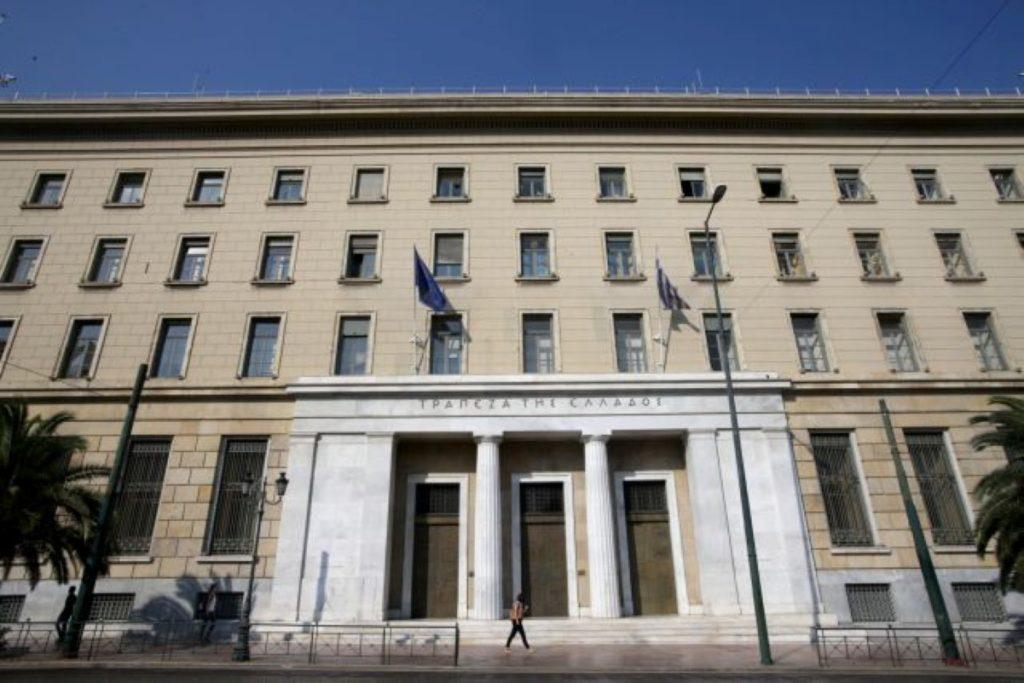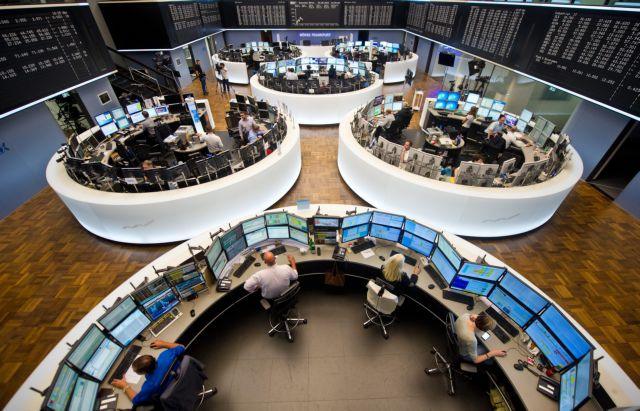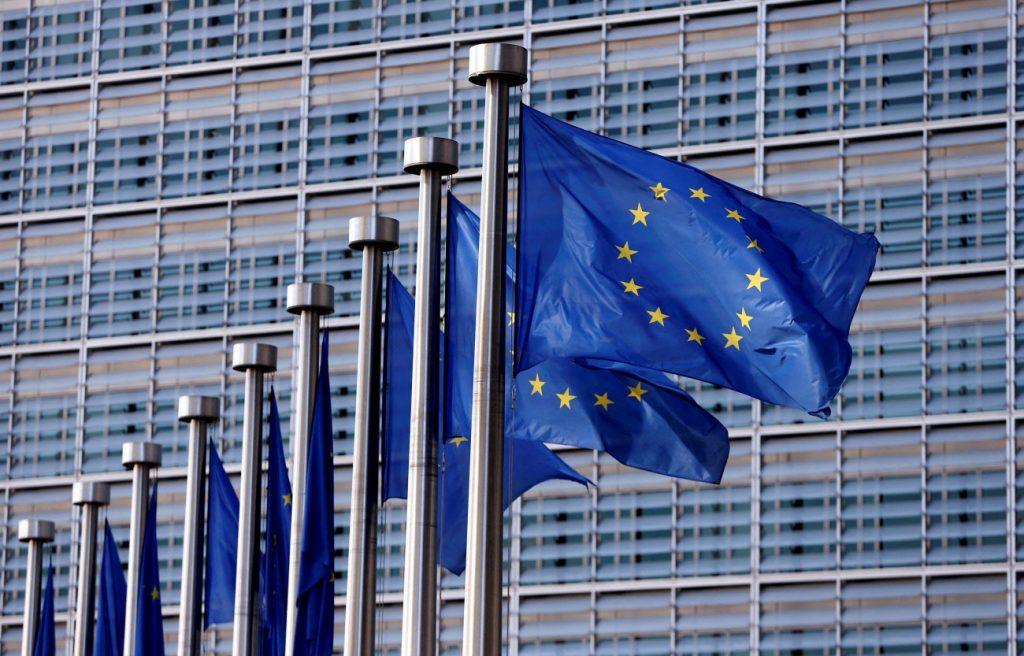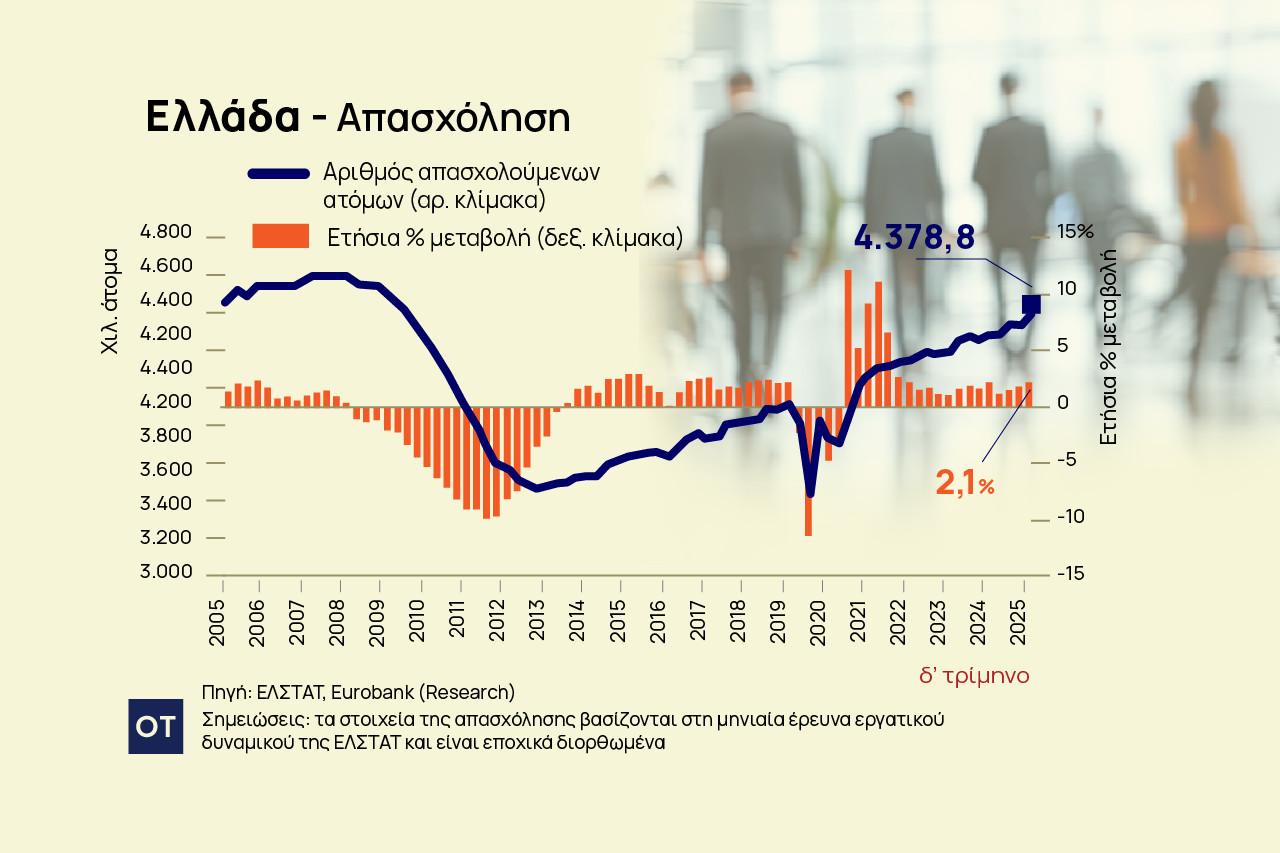The Greek economy is set to continue growing until 2027, according to an analysis titled “Note on the Greek Economy,” the Bank of Greece (BoG) released today.
The analysis sees a 2.3% GDP growth rate in 2025, followed by 2% in 2026 and 2.1% in 2027, the largest in the Eurozone. It cautions, however, that inflationary pressures will persist, hovering at 2.5% in 2025, mainly due to wage increases, high rent costs, and increased indirect taxes.
In 2026, inflation is projected to fall to 2.1%, while in 2027, a temporary increase to 2.4% is expected, driven by the inclusion of the effects of the emissions trading system in the energy component of the Harmonized Index of Consumer Prices (HICP).
Despite its positive outlook on economic growth, driven mainly by consumer spending, sustained exports, and investments, the country’s central bank highlights a series of risks that could hamper the dynamic of growth, including protectionism in global trade (tariffs).
In addition, the analysis draws attention to the more adverse effects on the global economic environment due to increased and persistent uncertainty; tighter labor market conditions and stronger wage pressures; natural disasters linked to the impacts of the climate crisis; a slower-than-expected absorption and use of Recovery and Resilience Facility funds; and a slower-than-anticipated implementation of necessary reforms, negatively affecting the productivity of Greece’s economic activity.
Source: Tovima.com


















![Ακίνητα: Πώς επηρέασε τις τιμές η ενεργειακή κλάση και το έτος κατασκευής [πίνακες]](https://www.ot.gr/wp-content/uploads/2026/01/akinita-1-1024x682-1.jpg)



















